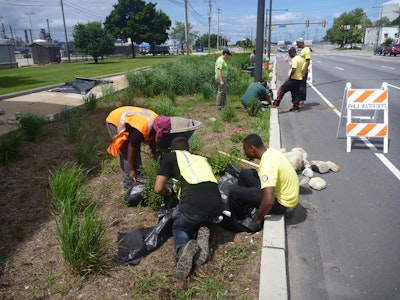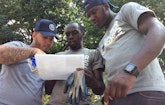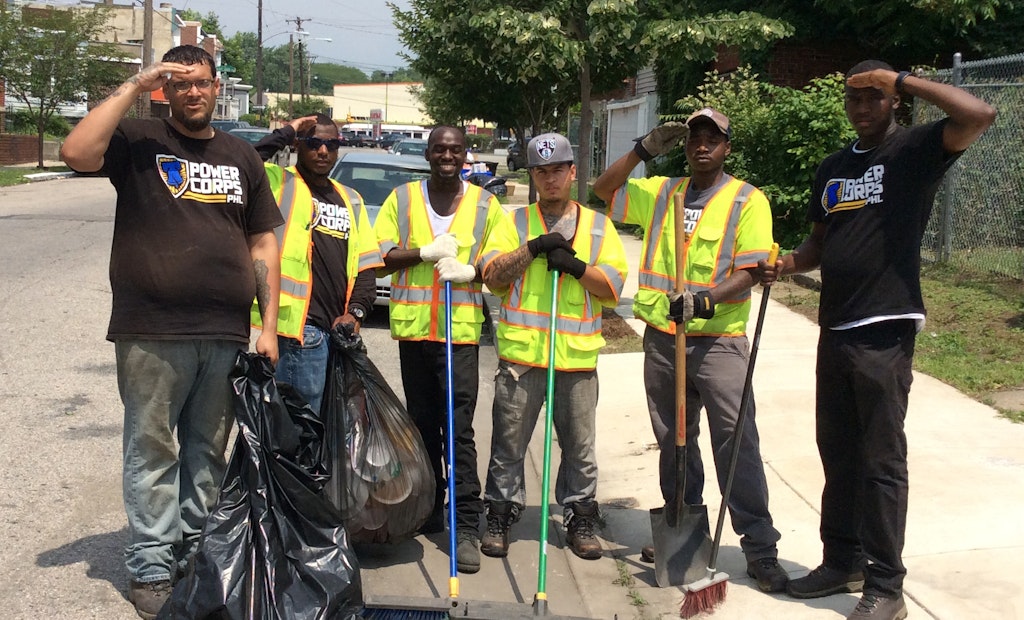
Interested in Education/Training?
Get Education/Training articles, news and videos right in your inbox! Sign up now.
Education/Training + Get AlertsPaul Johnson’s life was starting to spin out of control.
The Philadelphia resident had been arrested for a DUI, and his future didn’t look too bright. Johnson’s probation officer sent him to a meeting in which Johnson was told about PowerCorpsPHL.
The innovative AmeriCorps program was established in September 2013 to address Philadelphia’s environmental stewardship initiatives, workforce development and violence prevention policies.
Participants in PowerCorpsPHL have to be 18- to 26-year-old Philadelphia residents who either had criminal justice involvement, been in foster care or dropped out of high school and are looking to receive their diploma or GED and trying to figure out their next steps. It’s a nine-month program, six months as full-time AmeriCorps members with Philadelphia city departments, followed by three months of intensive job placement support.
The program intrigued Johnson. He filled out the pretty rigorous application for one of the 100 positions open per six-month cohort, and was accepted.
“It was a good experience,” Johnson says. “It gave me a chance to turn my life around and stop being in trouble, focus on the positive things. I’m making my way with it now.”
Johnson, 24, was part of two consecutive cohorts from March 2014 to March 2015. For the first cohort, Johnson was a simply a member, and the second time around served as an assistant crew leader.
“They connected me with CEOs of companies, people from the sector; they connected me to any opportunity they could to find some type of career,” Johnson says. “At the time, I was working at McDonald’s.”
The members serve on crews for the Philadelphia Water and Parks and Recreation departments. During every cohort, there are at least two crews working with the water department. On the parks side, the participants deal with public land revitalization and making sure the park system stays clean.
The PowerCorpsPHL members learn invaluable skills.
“Throughout that time they’re serving they’re getting tons of professional development, hard and soft skill training, network building opportunities and career planning,” says Catie Wolfgang, chief service officer for the Philadelphia Mayor’s Office of Civil Engagement and Volunteer Service. “When they leave us, the idea is that they are either going in career tech employment or additional national service or postsecondary education. For most folks, it’s some combination of those things.”
PowerCorpsPHL works very closely with city’s water department to maintain the growing number of green stormwater infrastructure, which goes along with the city’s Green City, Clean Waters plan.
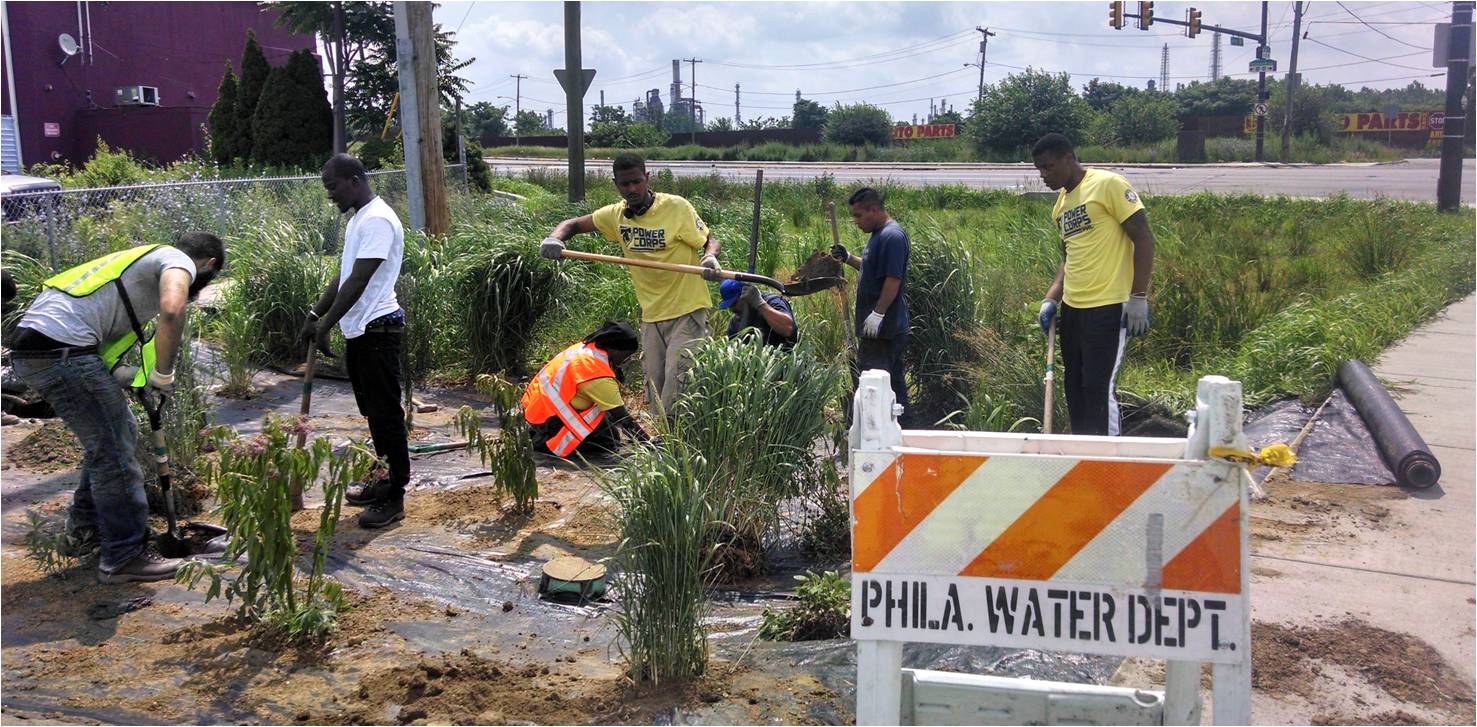
“It’s a very positive partnership, all the way from the commissioner down has bought into the assistance that the program affords us in way of maintaining green stormwater infrastructure across Philadelphia,” says Paul Warwood, Philadelphia Water environmental scientist. “People like myself get to go out in the field with them routinely and help them do projects.”
“It’s running much better than I thought,” says Gerald Bright, Philadelphia Water Department green stormwater infrastructure maintenance group supervisor. “PowerCorps is able to handle much more than we had initially planned for.”
The program is a win-win for the participants as well as the city. The PowerCorpsPHL can transform themselves as well as their communities.
“PowerCorpsPHL has been instrumental in helping us really grow this aesthetic piece of the program,” Bright says. “It’s just not cost-effective to send out a landscaper for $60 or $70 an hour, three, four, five, six, seven times a month to 400 locations — we could never get that done.”
The participants are making a difference they can literally see in the field on a daily basis.
“Their service that they’re doing is not ancillary, but it’s really in line with what’s critically important to the department,” says Wolfgang, who notes that roughly 75 percent of the participants complete the six-month program. “We are measuring that service in terms of work orders completed and tonnage of waste removed from their water system and tonnage recycled, and have a measureable impact that’s been growing from cohort to cohort. We’re at a point where the water department is now really excited about bringing many of our Corps members on as paid employees, and we’re also working with some of the subcontractors, and they’re also hiring some of our alumni.”
In the two years PowerCorpsPHL has been running, the program has produced 14 alumni who are working in the green infrastructure sector either in the city’s water department or one of its subcontractors. The city and subcontractors prefer hiring the former program participants because they have in-depth knowledge of the area and the inner workings of highly demanding green stormwater infrastructure maintenance.
“We invest all this time in them and give them this great foundation of knowledge and they take it to private industry jobs, they take it to public sector apprenticeship programs, so it’s not like all this time is wasted,” Warwood says. “They move directly in the next step with an advantage.”
Johnson is one alumnus who found a job quickly after completing the program. He’s working at AKRF, one of the country’s largest environmental, planning and engineering consulting firms. Johnson is also attending the Community College of Philadelphia to get a degree to one day become an environmental engineer.
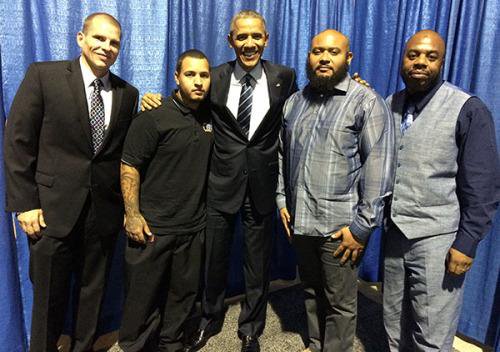
One of Johnson’s friends, Aaron Kirkland, is currently a member of PowerCorpsPHL’s fourth cohort, which ends in August. Kirkland, 26, was released from prison in September 2014 and ever since has had a difficult time finding employment because of his background.
“This program is important to me because they gave me an opportunity to get back into the work field and to help me develop professionally so when I do get a job, I can keep it,” Kirkland says.
Kirkland watched Johnson land a job fresh out of the PowerCorpsPHL program, and he’s hoping for the same result.
“To see him reach his potential and turn it into actuality, that’s something I want,” says Kirkland, who enrolled in college to also get a degree in environmental engineering and hopefully work for the water department.
Along with learning the skills to advance their opportunity at employment after graduating from the program, most PowerCorpsPHL members become passionate about green stormwater infrastructure. The participants seem to enjoy informing community members, friends and family on how, say, throwing trash in the sewer impacts the water system. Spreading the word is half the battle.
“Once they experience the program for I’d say a couple weeks, it’s a learning curve, and I have seen personally them becoming excellent advocates by the midpoint in their program,” Warwood says. “They really start to understand the bigger picture ... and become advocates in their community and to their friends and family members.”
PowerCorpsPHL has changed the way participants in the program view their city.
“I never thought about the issues dealing with managing stormwater. I never thought it was that big of deal,” Kirkland says. “But now I feel like this is the new wave and now it’s how to manipulate technology and combine it with how the process is supposed to go. It’s something that I love … the idea of making a city greener.”
Johnson couldn’t agree more about making Philadelphia a cleaner and greener metropolis.
“It’s good for the environment,” Johnson says. “It’s good for us because it helps keep our water clean, and it’s beautiful, the gardens, and made the neighborhoods look nice. There are a lot of pluses, and I just want to be the person to help that train keep moving.”
